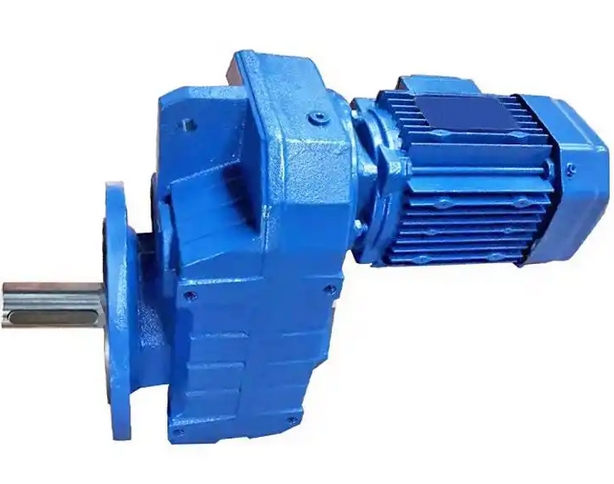Performance of FF127-70.7-Y18.5-4P-M1 Hard Gear Reducer at Different Temperatures
The performance of FF127-70.7-Y18.5-4P-M1 hard tooth reducer at different temperatures is as follows:
Low temperature environment (-40 ℃ to 0 ℃):
Lubricating oil performance: Low temperature will increase the viscosity of lubricating oil, deteriorate its fluidity, reduce the lubrication effect, and thus increase the wear between components. For example, at -20 ℃, ordinary lubricating oil may become like a thick paste, making it difficult to form a good lubricating film on parts such as gears and bearings.

Difficulty in starting: Due to the increased viscosity of the lubricating oil, the gearbox needs to overcome greater resistance when starting, which may lead to difficulty in starting and require longer time to accelerate to normal operating speed.
Material properties: Low temperatures may reduce the toughness of certain metal materials, increase brittleness, and make mechanical components more susceptible to damage when subjected to impact or load.
Normal temperature environment (0 ℃ to 45 ℃):
Lubricating oil performance: Within this temperature range, lubricating oil can maintain good fluidity and lubrication performance, effectively reducing friction and wear of components such as gears and bearings, ensuring the normal operation of the gearbox.
Transmission efficiency: The gears of the hard tooth surface reducer are made of high-strength low-carbon alloy steel that has been carburized and quenched. The tooth surface hardness is high, the gear accuracy is high, and it can maintain a good meshing state at room temperature. The transmission efficiency is high, and the efficiency of a single machine can generally reach over 95%.
Noise and vibration: Due to the high precision of gear machining and smooth meshing, the noise and vibration are relatively small when operating at room temperature, providing a relatively stable operating environment for the equipment.
High temperature environment (above 45 ℃):
Insulation material aging: The insulation material in the reducer will accelerate aging at high temperatures, shortening its service life. For example, when the temperature reaches 60 ℃ or above, the aging rate of insulation materials will significantly accelerate.
Lubricating oil performance: High temperature will reduce the viscosity of lubricating oil, leading to a decrease in its lubricating performance and an increase in gear wear rate. Meanwhile, high temperatures may also cause the lubricating oil to oxidize and deteriorate, resulting in impurities such as sludge and carbon deposits, further affecting the lubrication effect.
Thermal expansion problem: An increase in temperature can cause thermal expansion of internal components of the gearbox, which may affect the meshing accuracy of the gears, increase noise and vibration, and even lead to equipment failure.

